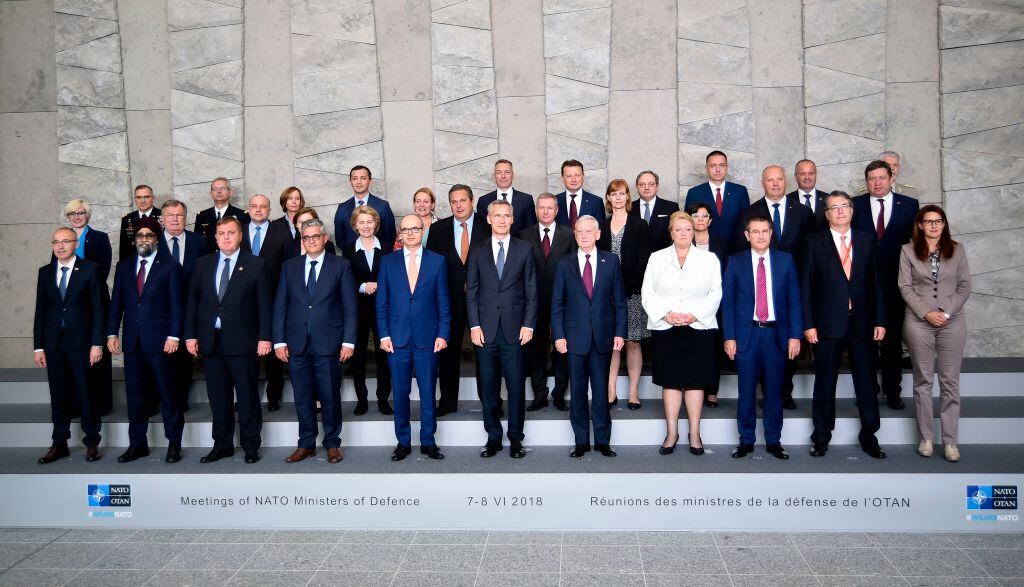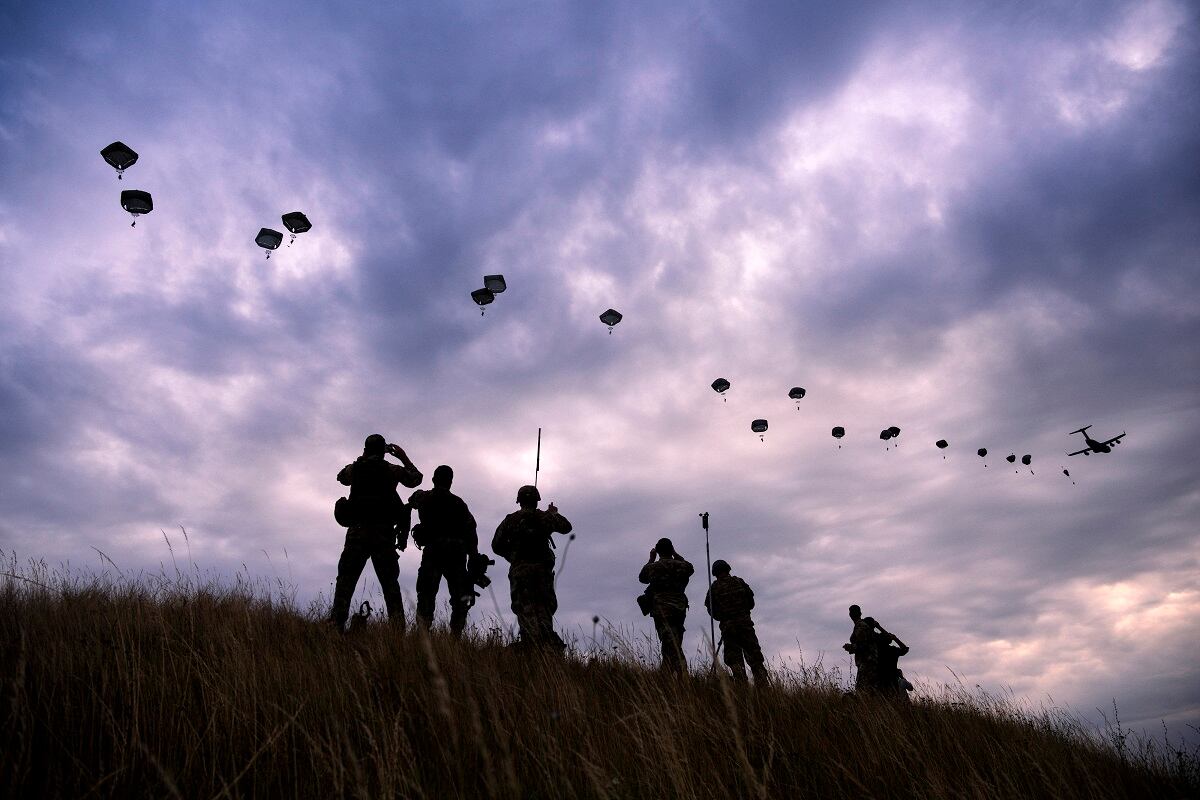WASHINGTON ― When the 29 NATO states gather in Brussels for the biannual NATO Summit from July 11-12, expect a heavy focus on the eastern flank with Russia. But it is important to remember that some NATO nations reside on the other side of the continent ― and have different geographic priorities.
José Alberto de Azeredo Lopes, the minister of defense for Portugal, believes NATO needs to reassess its internal structures to better deal with new challenges from Africa, Iraq and Syria. He talked about that, and the infamous defense-spending target of 2 percent of gross domestic product, with Defense News on June 13.
Let’s start big picture. What are your expectations and hopes for the upcoming NATO summit?
To tell you the truth, I have no enormous expectations. What I hope is that we can reunite again and forget for a while the issue of the 2 percent that is in some ways becoming an obsession for us. So I think what is the most important thing that I would like to see in the NATO summit is to see friends and allies speaking again, frankly, about their positions on defense issues on collective security, on collective defense.
Portugal is a founding member of NATO, and [while] we agree fully that the states must be more committed in financial aid, from a financial perspective on their collective defense, I am a little bit afraid that this is turning out to be the only issue that we are discussing. We have lost, somehow, our ideals. I don’t follow in any way those who consider NATO is going down or that it has lost its fundamental purpose. But I strongly believe that it would be a very important sign, even for our adversaries, that we gave a clear message: We can be here and there discussing some issues, but on the fundamentals we continue as solid as a rock.
RELATED

How do you make that argument, though, to this particular American administration, which has become very focused on the 2 percent issue?
I have no problem doing this. I always speak very frankly. And I must say that I don’t remember such good relations between Portugal and the United States in defense issues. I don’t remember in the past. We are working very well on the Azores issue. We are working on the bilateral plan. And I can say ― and I say it in a very convinced way: I like Secretary [Jim] Mattis very much. I think he’s an excellent secretary of defense. We could speak with him very frankly. If you want to speak about money, you can always speak about money, but is our common security and defense only a 2 percent issue?
Let me make an exercise: If every state was at 2 percent defense budget ― now there will be no further problems? We would be secure? Because if it does that, I can convince my prime minister to pay the 2 percent. But can anyone seriously say that our defense and security issues are a money issue? I have some doubts on that.
When you say you feel NATO has lost its ideals, what do you mean?
I [took] office in November 2015. My first meeting [at NATO], we only discussed Russia. Russia. And Russia. And I even asked, smiling, if I was in a meeting of the “Eastern Treaty Organization” because I have heard no word about the Atlantic, the northern part of the Atlantic, the new challenges of transnational terrorism. I was astonished not to see these kinds of features of modern, of contemporary issues of our security and defense. I think that it’s important to define very clearly: What do you want NATO for?
I continue considering that it should recover its capacity of innovation, of seeing in a broader way that we are very western, that we are in the western part of Europe. I like very much my eastern friends.
We are very active on showing our solidarity in a very concrete way. For instance in Lithuania, our marines are there, our F-16s are there. So we don’t receive lessons from anyone about our commitment to our collective approach to security and defense. But NATO should be always the engine that integrates, interprets, makes interpretation of the challenges felt by every state. I think that NATO has a bright future, but it has to adapt to new challenges.
In recent months you’ve said there needs to be a new strategic concept for NATO. What should that look like? Is it a play on the 360-degree concept?
The 360-degree approach ... I cannot hear this cliché anymore. I’m sorry for saying this. What I asked NATO is to modernize its way of thinking and of acting. We must remember: NATO was created in a very traditional way. We created a very traditional organization with state members, with the state procedures, with the famous Article 5. And we asked this instrument to be our alliance against a very traditional power, a very state-centered power, a very territorial power. So it was territories against territories, and it worked marvelous, in a marvelous way. It’s a very professional organization. We have brilliant persons.
But we are having difficulties in understanding what we need all these apparatuses for. We are discussing standard, traditional issues. But when you begin speaking on the south, you don’t really know what you need to do, and you say: “Well, let the others do this job.“ What others? European Union for instance? Maybe. The United Nations? Maybe. But when you look to the Atlantic, when you look to the Gulf of Guinea, it’s difficult to understand why NATO has not a regular naval presence there.
But this seems like a fundamental problem for NATO. You can have a strategic concept, but fundamentally this is an alliance that goes from the Atlantic Ocean to the Baltic. You’re never going to convince the Estonians that, “no, the real issue is south,“ when they’re looking at Russia. They are never going to convince you that the immediate threat is Russia, not the south.
I think this is a false argument. I [need] not to be convinced on the feeling of threat of an Estonian against the Russians. I don’t need to have nightmares with Russia to understand that you feel very directly threatened. And so if you feel like this, and if in an objective way there is this threat, we are there because it’s our obligation, because we are allies and because we are a part of the same project.
[Similarly] I don’t want an eastern county to understand all the marvels of the Gulf of Guinea. But I need them to understand that, for instance, if there are security threats there that we are all going to pay. Because almost 40 percent of the global trade is going through that, and if it’s not secure everyone is going to pay the price. And if Africa is not secure we are all going to pay the price. If one acts only and reacts only to its direct threats, we don’t need NATO. And so this is the challenge we need to stop.
If you see the naval capacity of Russia, we can see them going through our water. We can wave [to them]. We are speaking the same language, the same threat, because they are global. You cannot speak about the eastern flank when you see Russia in Syria; when you see Russia in the Central African Republic. We have seen them there ― they are there already. So what is this “eastern flank“ issue? They were more effective in Syria than literally in the eastern front. Maybe it’s time for us to understand that we are all together facing the same challenges and the same adversaries.
RELATED

Are you satisfied with how the European Union defense proposals have gone so far? The Permanent Structured Cooperation initiative on defense and security is relatively new, but the European Defence Fund has been around for a bit.
We are strongly committed to PESCO, but we are strongly committed to PESCO knowing what I said: that our core collective, secure instrument continues, and we will continue to be NATO. It’s not the time to make new divisions, but we believe that our common security and defense policy was, more or less, sleeping. Let’s return to June 23, 2016 ― Brexit. So then we were going: “Wow, maybe the European Union is not eternal.“ But if you see what we have done in two years, it’s quite extraordinary. [Brexit was] a very, very, very strong pressure to reinforce our investment in defense. If we wanted to survive as a political unit, we had to find something that reunited us. Defense was this. It’s very interesting that one of the major contributions to where we are today with PESCO was Brexit.
Aaron Mehta was deputy editor and senior Pentagon correspondent for Defense News, covering policy, strategy and acquisition at the highest levels of the Defense Department and its international partners.








